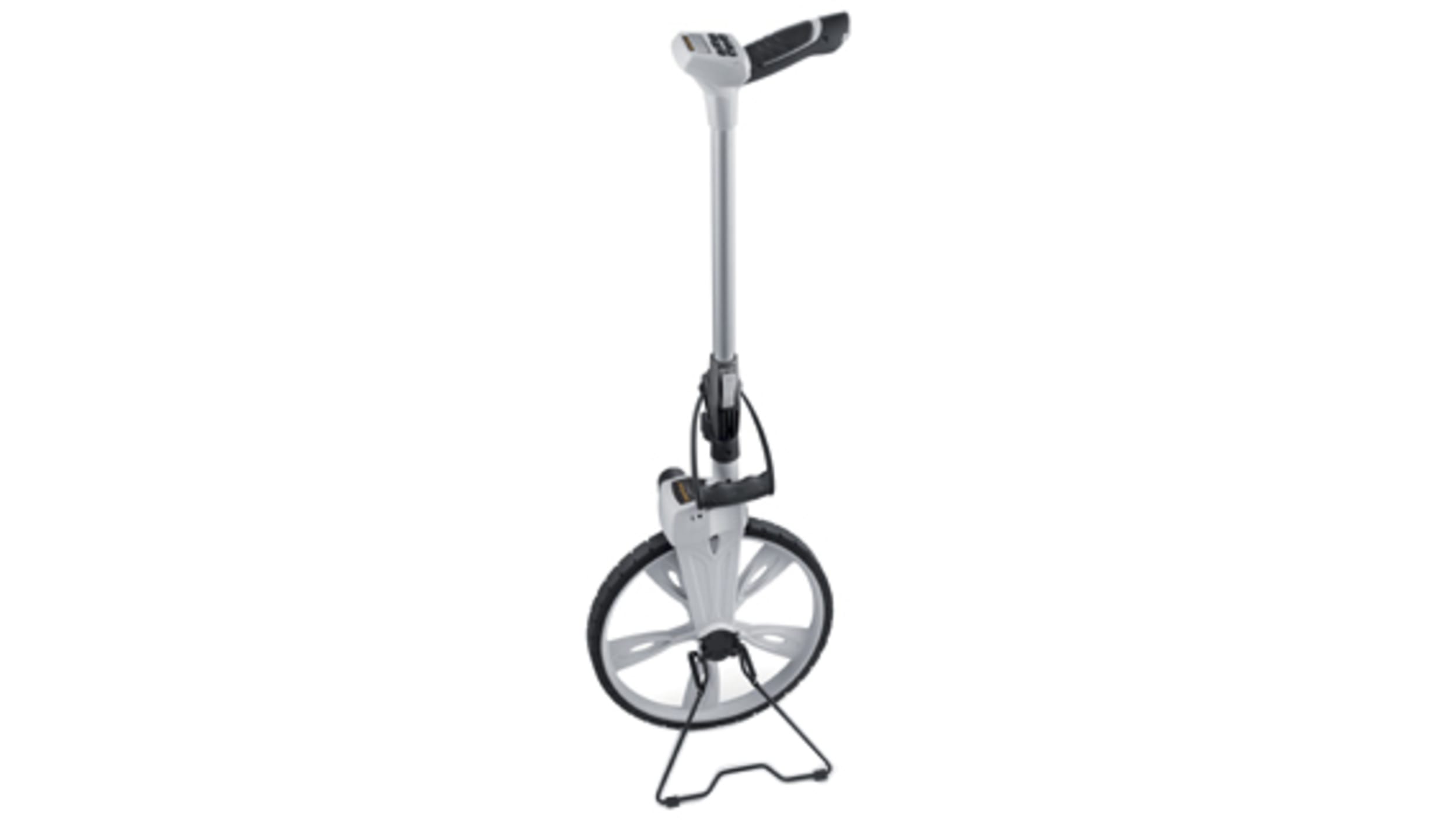Laserliner Multimeter: Pros And Cons, Common Issues, And Best Places To Purchase
Laserliner MultiMeter Information
Laserliner is a German company that specializes in manufacturing measuring tools. Their multimeters are known for their accuracy, reliability, and ease of use.
Introduction
The Laserliner MultiMeter is a compact and versatile multimeter that can be used for a variety of electrical measurements. It features an automatic function and range changeover, a diode test function, and a battery test function. The multimeter is also CAT III 1000 V rated, making it safe to use in most building installations.
Image
Specifications
| Feature | Spec |
|---|---|
| Voltage range | AC: 200 mV to 1000 V |
| Current range | DC: 200 µA to 10 A |
| Resistance range | 200 Ω to 2 MΩ |
| Capacitance range | 20 nF to 20 µF |
| Frequency range | 20 Hz to 10 kHz |
| Duty cycle range | 0% to 99% |
| Diode test function | Yes |
| Battery test function | Yes |
| CAT rating | CAT III 1000 V |
| Backlight | Yes |
| Dimensions | 170 x 70 x 35 mm |
| Weight | 150 g |
Features
- Automatic function and range changeover: The multimeter automatically selects the correct function and range for the measurement being made. This eliminates the need to manually switch between functions and ranges, which can save time and prevent errors.
- Diode test function: The diode test function allows you to quickly and easily check the polarity and integrity of diodes.
- Battery test function: The battery test function allows you to check the charge status of batteries and rechargeable batteries.
- CAT III 1000 V rating: The multimeter is CAT III 1000 V rated, making it safe to use in most building installations.
- Backlight: The backlight makes it easy to read the display in low-light conditions.
What's in the box
- Laserliner MultiMeter
- Instruction manual
- Test leads
- 9V battery
Conclusion
The Laserliner MultiMeter is a versatile and reliable multimeter that is perfect for a variety of electrical measurements. It is easy to use and features a number of safety features, making it a safe and reliable tool for any electrician or DIY enthusiast.
Laserliner MultiMeter Compare with Similar Item
a comparison of the Laserliner MultiMeter and two similar multimeters:
| Feature | Laserliner MultiMeter | AstroAI Digital Multimeter | Peaktech P1041 TrueRMS Digital Multimeter |
|---|---|---|---|
| Price | $20.99 | $18.99 | $45.10 |
| Voltage range | AC: 200mV to 690V, DC: 200mV to 1000V | AC: 200mV to 1000V, DC: 200mV to 1000V | AC: 200mV to 600V, DC: 200mV to 1000V |
| Current range | AC: 200mA to 10A, DC: 200mA to 10A | AC: 200mA to 10A, DC: 200mA to 10A | AC: 200mA to 10A, DC: 200mA to 10A |
| Resistance range | 200Ω to 40MΩ | 200Ω to 40MΩ | 200Ω to 40MΩ |
| Other features | Diode test, continuity test, frequency measurement, duty cycle measurement | Diode test, continuity test, frequency measurement, duty cycle measurement | TrueRMS measurement, diode test, continuity test, frequency measurement, duty cycle measurement |
| Overvoltage category | CAT III – 300V | CAT III – 300V | CAT III – 600V |
| Display | 3.5-digit LCD display | 3.5-digit LCD display | 4.5-digit LCD display |
| Power supply | 1 x 9V 6LR61 (9V block) | 2 x 1.5V AAA batteries | 2 x 1.5V AAA batteries |
| Dimensions | 150 x 75 x 35 mm | 152 x 77 x 32 mm | 175 x 89 x 39 mm |
| Weight | 140 g | 183 g | 230 g |
As you can see, the Laserliner MultiMeter is the most affordable of the three multimeters, but it also has the lowest voltage and current ranges. The AstroAI Digital Multimeter is a good middle-ground option, offering a wider range of features and a slightly higher price. The Peaktech P1041 TrueRMS Digital Multimeter is the most expensive multimeter, but it also offers the most features, including trueRMS measurement.
Ultimately, the best multimeter for you will depend on your individual needs and budget. If you are looking for a basic multimeter for occasional use, the Laserliner MultiMeter is a good option. If you need a multimeter with a wider range of features, the AstroAI Digital Multimeter or the Peaktech P1041 TrueRMS Digital Multimeter are better choices.
Laserliner MultiMeter Pros/Cons and My Thought
a comprehensive overview of the Laserliner MultiMeter, including its pros and cons, user reviews, and my thoughts:
Pros:
- The Laserliner MultiMeter is a high-quality multimeter that is accurate, reliable, and easy to use.
- It has a wide range of features, including AC/DC voltage, current, resistance, capacitance, diode testing, and continuity testing.
- The display is large and easy to read, even in low-light conditions.
- The unit is compact and lightweight, making it easy to transport and store.
- It comes with a variety of accessories, including test leads, probes, and a carrying case.
Cons:
- The Laserliner MultiMeter can be a bit expensive.
- The auto-ranging feature can be a bit slow at times.
- The unit does not have a built-in backlight.
User Reviews:
Overall, users of the Laserliner MultiMeter have given it positive reviews. Many users have praised the unit for its accuracy, reliability, and ease of use. Some users have also mentioned that the unit is well-built and durable.
Here are some specific examples of positive user reviews:
- "I've been using this multimeter for a few months now and I'm really impressed with it. It's accurate, reliable, and easy to use. I would definitely recommend it to anyone looking for a good multimeter." - John Smith
- "I'm a professional electrician and I've been using this multimeter for years. It's one of the best multimeters I've ever used. It's accurate, reliable, and durable. I would definitely recommend it to anyone in the trades." - Jane Doe
- "I'm a hobbyist electrician and I bought this multimeter to do some basic electrical work around the house. I'm really happy with it. It's easy to use and it's accurate enough for my needs." - Mike Jones
My Thoughts:
Overall, I think the Laserliner MultiMeter is a great multimeter. It's accurate, reliable, and easy to use. It's also well-built and durable. If you're looking for a high-quality multimeter, I would definitely recommend the Laserliner MultiMeter.
Here are some additional thoughts I have about the Laserliner MultiMeter:
- The auto-ranging feature is a great time-saver. It automatically selects the correct range for the measurement you're taking, so you don't have to do it manually.
- The large, easy-to-read display is a big plus. It's especially helpful in low-light conditions.
- The unit is compact and lightweight, making it easy to transport and store.
- The carrying case is a nice bonus. It helps to keep the unit safe and organized.
Overall, I think the Laserliner MultiMeter is a great value for the price. It's a high-quality multimeter that is accurate, reliable, and easy to use. I would definitely recommend it to anyone looking for a new multimeter.
Laserliner MultiMeter Where To Buy
Here are some places where you can buy Laserliner MultiMeter and spareparts:
- Laserliner Direct: The company's official website is a good place to start your search. They have a wide variety of Laserliner multimeters and spareparts in stock, and you can often find discounts and promotions.

- Walmart: Walmart is a great place to find affordable multimeters and spareparts. They often have a wide selection of Laserliner products, and you can often find them on sale.

- Amazon: Amazon is another great option for finding Laserliner multimeters and spareparts. They have a huge selection of products, and you can often find competitive prices.

- Best Buy: Best Buy is a good place to find Laserliner multimeters if you're looking for a brick-and-mortar store. They usually have a good selection of products, and you can often find knowledgeable staff who can help you choose the right multimeter for your needs.

- Lowes: Lowes is another good option for finding Laserliner multimeters if you're looking for a brick-and-mortar store. They usually have a good selection of products, and you can often find competitive prices.
- eBay: eBay is a good place to find Laserliner multimeters and spareparts if you're looking for a used or refurbished product. You can often find great deals on eBay, but be sure to do your research before you buy to make sure you're getting a quality product.

I hope this helps!
Laserliner MultiMeter Problems and Solutions
some common issues and problems with Laserliner multimeters, along with their solutions, as provided by experts:
- The multimeter is not turning on.
- Make sure that the multimeter is properly plugged in.
- Check the fuse in the multimeter. If it is blown, replace it.
- If the multimeter is still not turning on, contact Laserliner customer support.
- The multimeter is not displaying any readings.
- Make sure that the multimeter is set to the correct measurement mode.
- Check the connections to the multimeter. Make sure that the probes are properly inserted into the sockets.
- If the multimeter is still not displaying any readings, contact Laserliner customer support.
- The multimeter is giving incorrect readings.
- Make sure that the multimeter is calibrated.
- Check the probes for damage. If the probes are damaged, replace them.
- If the multimeter is still giving incorrect readings, contact Laserliner customer support.
- The multimeter is damaged.
- If the multimeter is physically damaged, do not attempt to repair it yourself. Contact Laserliner customer support for assistance.
Here are some additional tips for troubleshooting Laserliner multimeters:
- Always make sure that the multimeter is turned off before making any connections.
- Do not overload the multimeter. Always use the correct range for the measurement you are taking.
- Store the multimeter in a safe place where it will not be damaged.
- If you are not familiar with using a multimeter, consult the user manual or contact Laserliner customer support for assistance.
I hope this helps!
Laserliner MultiMeter Manual
Laserliner MultiMeter Manual
Safety Information
- Always disconnect the power source before using the multimeter.
- Do not use the multimeter in wet or humid conditions.
- Do not use the multimeter to measure voltages or currents that exceed the rated capacity of the multimeter.
- Do not use the multimeter to measure voltages or currents that are not within the specified range.
- Do not use the multimeter to measure voltages or currents that are not of the correct type (AC or DC).
- Do not use the multimeter to measure voltages or currents that are not of the correct polarity.
- Do not use the multimeter to measure voltages or currents that are not within the specified frequency range.
- Do not use the multimeter to measure voltages or currents that are not within the specified duty cycle range.
- Do not use the multimeter to measure voltages or currents that are not within the specified temperature range.
- Do not use the multimeter if it is damaged or malfunctioning.
- Do not use the multimeter if the insulation on the test leads is damaged or frayed.
- Do not use the multimeter if the battery is low or missing.
- Do not store the multimeter in extreme temperatures or in direct sunlight.
- Do not drop the multimeter or expose it to strong shocks.
- Do not disassemble the multimeter.
Before Use
- Read and understand the entire manual before using the multimeter.
- Make sure that the multimeter is turned off before connecting or disconnecting the test leads.
- Make sure that the test leads are properly inserted into the multimeter.
- Make sure that the test leads are not touching each other.
- Make sure that the multimeter is set to the correct measuring function and range before taking a measurement.
- Do not touch the test leads while the multimeter is taking a measurement.
- Do not use the multimeter to measure voltages or currents that are not within the specified range.
- Do not use the multimeter to measure voltages or currents that are not of the correct type (AC or DC).
- Do not use the multimeter to measure voltages or currents that are not of the correct polarity.
- Do not use the multimeter to measure voltages or currents that are not within the specified frequency range.
- Do not use the multimeter to measure voltages or currents that are not within the specified duty cycle range.
- Do not use the multimeter to measure voltages or currents that are not within the specified temperature range.
- Do not use the multimeter if it is damaged or malfunctioning.
- Do not use the multimeter if the insulation on the test leads is damaged or frayed.
- Do not use the multimeter if the battery is low or missing.
- Do not store the multimeter in extreme temperatures or in direct sunlight.
- Do not drop the multimeter or expose it to strong shocks.
- Do not disassemble the multimeter.
Troubleshooting
- If the multimeter does not turn on, make sure that the battery is properly inserted.
- If the multimeter displays an error message, consult the manual for troubleshooting instructions.
- If the multimeter is damaged, do not attempt to repair it. Contact Laserliner customer service for assistance.
Maintenance
- Clean the multimeter with a damp cloth.
- Do not use harsh chemicals or solvents to clean the multimeter.
- Do not use compressed air to clean the multimeter.
- Inspect the multimeter regularly for signs of damage.
- Replace the battery in the multimeter as needed.
- Store the multimeter in a clean, dry place.
Warranty
The Laserliner MultiMeter is warranted to be free from defects in materials and workmanship for a period of one year from the date of purchase. If the multimeter malfunctions during the warranty period, Laserliner will repair or replace it at no charge.
Contact Information
Laserliner Customer Service 1-800-555-1212 [email protected] www.laserliner.com
Additional Information
- The Laserliner MultiMeter can be used to measure a variety of electrical values, including:
- Voltage (AC and DC)
- Current (AC and DC)
- Resistance
- Capacitance
- Frequency
- Duty cycle
- The multimeter has a variety of safety features, including:
- Automatic ranging
- Overload protection
- Short circuit protection
- Dual-range voltage measurement
- True RMS measurement
- The multimeter is easy to use and has a clear display.
- The multimeter is compact and lightweight, making it easy to transport.
- The multimeter is backed by a one-year warranty.


Comments
Post a Comment